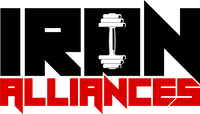
If you're lifting hard and not seeing muscle gains, the issue might not be your training—it might be your fork. Eating enough isn’t about eating "a lot," it’s about eating with intent. You need consistent, structured intake that supports performance, recovery, and growth.
Here’s how to tell if you’re truly eating enough to build muscle—no guesswork, no fluff.
Muscle growth doesn’t happen without some weight gain. If your body weight is staying flat for 2–3 weeks, it’s unlikely you're in a surplus. Shoot for 0.25 to 0.5 pounds per week. That small increase allows lean tissue growth without excessive fat gain.
If your weight is completely stalled, your body likely doesn’t have the raw materials to build anything.
Calories fuel performance. If your compound lifts like squats, deadlifts, and bench press aren’t trending upward, it may not be a programming issue—it may be that you're not eating enough.
Stronger lifts mean you’re recovering well and fueling adaptation. If you're stuck at the same numbers month after month, your diet needs to be the first thing you examine.
Are you feeling fresh for your next workout, or still wrecked from the last one? Inadequate recovery is often a direct reflection of insufficient food intake.
Proper fueling helps you bounce back quicker, reduces soreness, and supports high-quality training frequency. If recovery feels like a coin toss, your calories are probably too low.
Being hungry once in a while is fine. But if you're always thinking about food, especially after already eating, that’s a big red flag.
Constant hunger signals that your body is in a calorie deficit—or barely scraping maintenance. In a proper surplus, hunger should be moderate, not distracting or overwhelming.
Undereating messes with your hormones. When you’re chronically underfed, stress hormones like cortisol stay elevated and sleep hormones like melatonin can get disrupted.
If you're eating enough, you’ll likely fall asleep faster, stay asleep longer, and feel calmer throughout the day. Recovery isn’t just physical—it’s mental and emotional too.
Protein gets the spotlight, but carbs and fats are essential for building muscle too. Carbs fuel your workouts and help shuttle nutrients to muscles post-training. Fats regulate hormones like testosterone.
If you're scared to eat rice or peanut butter because “clean bulking,” you're likely under-fueled and stalling your progress.
You don’t need to log every gram, but you do need to know where you stand. Most people think they’re eating more than they are. A few days of tracking your actual intake can reveal big gaps.
Even rough tracking—like estimating servings or logging 3 days per week—is better than winging it entirely.
Gaining muscle doesn't always show up in day-to-day changes, but after a few weeks, you should start to notice differences. Muscles should look fuller, shirts might fit tighter, and your pump might last longer.
If you’re still looking flat or stringy, despite training hard, chances are your muscles aren’t being fed enough to grow.
Protein shakes are tools—not a crutch. If your diet is 80% liquid calories, you’re likely skipping out on whole foods that provide fiber, slow-digesting carbs, and essential micronutrients.
A quality bulking diet should include real meals. Shakes can support that, not replace it.
Increase intake by 250–300 calories per day. Add a second lunch, a late-night snack, or larger portions at meals. Track weight and gym performance for 2–3 weeks before reassessing.
Avoid massive calorie jumps. Gaining too fast adds fat. But if nothing’s changing, your current plan isn't enough.
Building muscle isn’t just about training harder. Think of recovery as a triangle:
Want more lifter-focused nutrition strategies? Browse the full Iron Alliances nutrition hub.
If nutrition is weak, the whole system underperforms. You can’t out-train or out-sleep a bad diet.